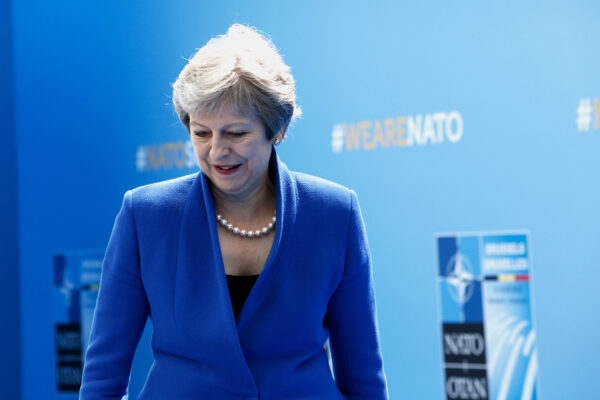
Chances that the United Kingdom will tumble out of the EU without an agreement are increasing.
- Conservative Party hardliners are still unwilling to accept the EU’s terms.
- Prime Minister Theresa May now apes their rhetoric in arguing that a no-deal Brexit would not be “the end of the world”.
- She also downplays the Treasury’s estimate that the British economy would shrink 8.8 percent without an exit deal as “a work in progress”.
- Dominic Raab, the new Brexit secretary, has released 24 technical notices advising industries on how to cope with a no-deal Brexit.
Three scenarios
The specifics keep changing, but the basic reality is unchanged from when Britain voted to leave the EU in late 2016.
I argued at the time that Brexit could go one of three ways:
- Hard Brexit: The EU refuses to compromise on the inseparability of its “four freedoms”. Britain refuses to compromise on border control.
- Norway-style: Britain accepts some free movement in return for continued access to the EU single market.
- Brexit nirvana: The EU capitulates and allows the United Kingdom to remain in the customs union and single market without accepting free movement of people.
Clearly #3 isn’t going to happen. The hope of non-delusional Brits and the EU has been #2, but the intransigence of the Conservative right is making that outcome less and less likely.
Consistent
The EU, both at the institutional and the leadership level, has been consistent throughout: the free movement of capital, goods, services and people cannot be separated.
French president Emmanuel Macron reiterated as much this week:
France wants to maintain a strong, special relationship with London, but not if the cost is the unraveling of the European Union’s integrity.
Yet that is exactly what Britain is trying to achieve.
It wants to keep the benefits of the EU customs union (no tariffs) and single market (open borders, harmonized regulations) without accepting EU immigration.
In other words: Britain wants to fundamentally change Europe at the same time it is leaving the union. It makes no sense to the remaining 27 member states.
Exception
It is true the EU has been willing to make an exception for Northern Ireland. The province would have to remain in the EU customs union and single market in order to avoid a hard border with the Republic of Ireland.
But, as the Financial Times has pointed out, it is one thing to grant a partial exception to a subnational province subject to a peace deal that includes an EU member state and which the EU has committed to uphold. It is quite another to allow a large economy right on the EU’s doorstep to pick and choose the elements of its single-market membership.
